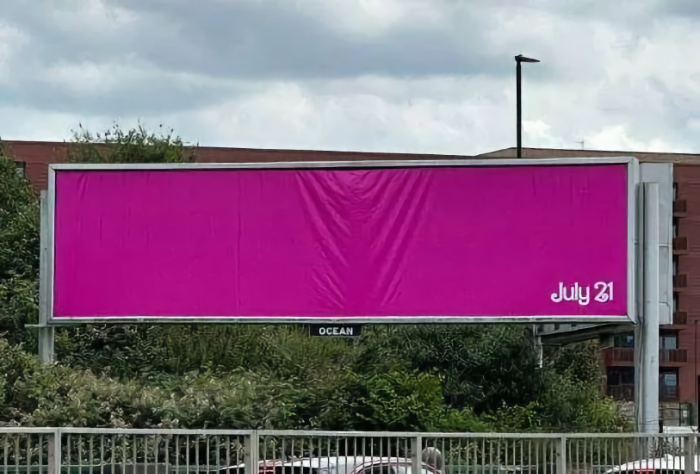(Image: a Barbie billboard poster that is just is so impressive. Source: Reproduction via RockContent.)
I am reasonably sure that I have never even seen a Barbie doll in real life, yet I came out of the cinema last weekend wishing I’d written the Barbie movie. Greta Gerwig and Noah Baumbach wrote a film that is so clever, so joyous and so sad that they made me feel for a plastic doll I’ve never seen or thought about before.
There are things I’m not keen on, such as one gag about Mattel cancelling a particular type of Barbie doll. It’s good, but then it’s practically repeated later. I’ve read that in scripts before, where a gag was being tried out in two scenes but you have to pick one or you diminish both.
Then there’s a narrator at the start and unless a narrator is lying to me, unless they are what’s known as an unreliable narrator, I have a problem with them because they are problematic. Barbie’s narrator does what they all do: talks a lot at the start, comes back for a quickie sequence in the first half hour, and is then forgotten about completely.
Except then she comes back to throw in a line that is very self-aware about this being a film. Without giving it away, the line is funny but it comes so late that you’ve forgotten there is a narrator — and it comes precisely at the right time to undercut Margot Robbie’s performance as Barbie.
She is extraordinary. Barbie manages to remain plastic and unmistakably doll-like, yet also convey happiness and fear and betrayal. It’s deeply impressive and also very funny, except when it is heartbreaking.
Otherwise, this script is replete with jokes that I both get and wish I’d written, and I am certain it is also replete with at the very least the same number of jokes again that I simply didn’t get. Poor comedy just uses references it knows its audience will recognise, but great ones do exactly that with such a light touch that if you don’t know the reference, you don’t even realise it’s been referred to.
The only reasons that I know there is so much I missed is how the film is a ceaseless barrage of spoken and visual gags, and you come to realise the background has as many as the foreground. Plus YouTube has half a pound of videos detailing all the bits everyone missed.
So there is all this going on, but Barbie doesn’t exclude you just because you happen, like me, to not know the history of the doll.
Absolutely brilliantly, it also presents every criticism Barbie has had over the years and it does so without flinching or apologising. It is brutal about Mattel, too.
I can’t stop thinking about that streak of – I was going to say viciousness, but no, I think it’s a vein of strength. The film sets up this fantastical pink world but doesn’t do it by being cloying or saccharine, it somehow does it while also being pragmatic. I do not have the remotest idea how it did that.
Then amongst so much going on in this film, a central point is about patriarchy keeping women down and I don’t think you can argue that Barbie handles this subtly.
But then I also don’t think you can argue that this central point is wrong.
Whereas I do think you can argue that my own central point is. I said that I came out of that cinema wishing I’d written the film. After a few days, though, I realised that actually what I wish is that I could write any film the way Greta Gerwig and Noah Baumbach wrote this.
But I did not come to this realisation by myself. I had help. Specifically, it was writer Andrea Mann who commented on Facebook about my enthusiasm for the film.
“It’s great, isn’t it?” wrote Andrea. “And I took from it that I want to write like they wrote Barbie: i.e. to swing for the fences, to lean into your own tastes and ideas, to write as you unapologetically want to write. Because that’s the overall vibe I got from it: that Greta Gerwig (and Noah Baumbach) just, well, went for it. And I find that really inspiring.”
Now I wish I’d written Andrea’s comment, too.
